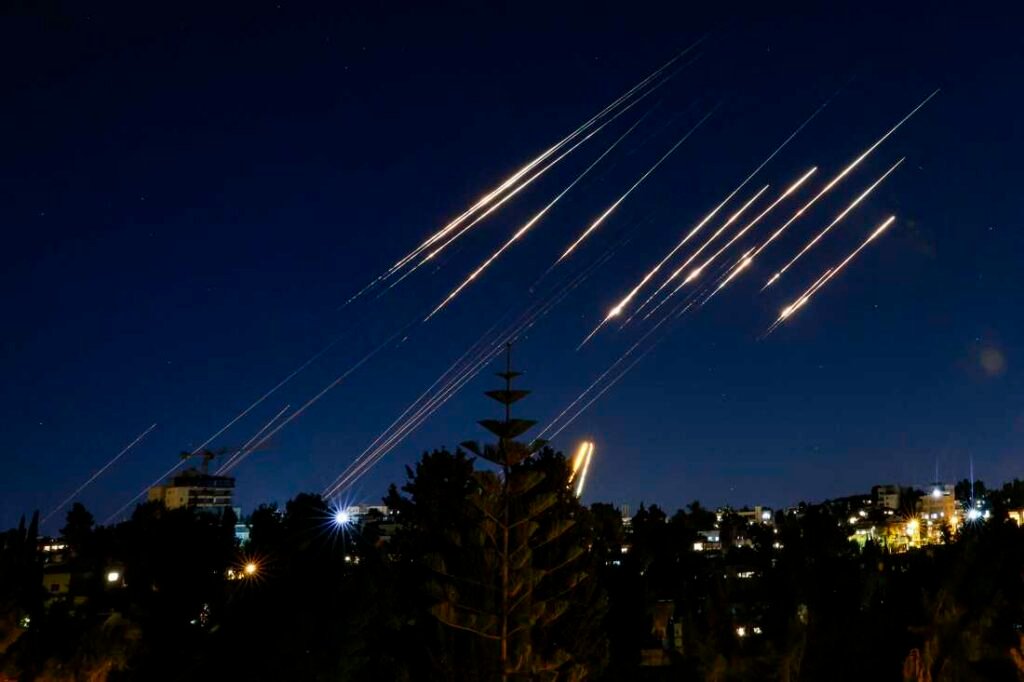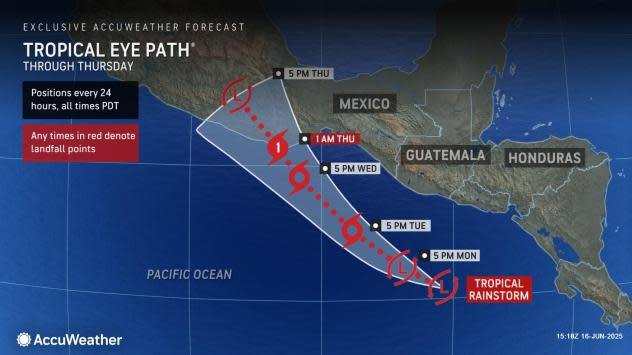
TEHRAN, IRAN – JUNE 15: Fire and smoke rise into the sky after an Israeli attack on the Shahran oil … More depot on June 15, 2025 in Tehran, Iran. Iran’s foreign minister said the country would respond “decisively and proportionally” to a wave of attacks that Israel launched beginning in the early hours of June 13. The attacks targeted multiple military, scientific and residential locations, as well as senior government officials. (Photo by Stringer/Getty Images)
Following last Friday’s oil price surge in the wake of Israel’s airstrikes on Iran, the oil markets have begun to settle given a sense that a broader regional conflict may be avoidable. But any notion of calm could be premature. While Brent crude has retreated to around $73 a barrel after topping $78 initially, and WTI has slipped nearly 6% from its recent high, the oil markets remain gripped by tension.
The conflict between Israel and Iran is in its fourth day and continues to widen. Israel targeted Iran’s state television headquarters during a live broadcast and claimed to have destroyed roughly one-third of Iran’s missile launchers. In response, Iran struck an Israeli oil refinery and damaged parts of Israel’s power grid. Explosions were reported in both countries, with Israeli residential areas hit and Tehran residents reportedly fleeing the capital amid fears of escalating violence.
Oil Markets React, But the Future Remains Uncertain
Despite the intensifying conflict, the initial panic buying has subsided. Oil prices have softened, largely on hopes that a broader regional war—especially one that disrupts oil flows through the important Strait of Hormuz—can still be avoided.
The Strait remains a key concern. As a conduit for around 20% of the world’s daily oil supply, any disruption in shipping through this narrow channel could spark a major spike in energy prices. For now, shipping lanes remain open, but tanker insurers are raising risk premiums, and many carriers are on high alert.
Markets Watching for Signals
The geopolitical complexity is compounded by signals from political leaders. President Donald Trump, while voicing strong support for Israel, has refrained from endorsing joint G7 calls for de-escalation. Meanwhile, Iran has rejected negotiations with the U.S. while its cities remain under attack. Israeli operations, according to officials, could last “weeks, not days”—suggesting a prolonged and potentially destabilizing campaign.
While markets try to price in risk, the situation on the ground is evolving too rapidly for comfort. Investors initially retreated into safe-haven assets like gold and U.S. Treasuries but have since cautiously returned to equities. Still, the mood remains uneasy. Energy stocks in particular are swinging widely, reflecting just how fluid conditions remain.
Long-Term Supply Concerns Remain
Beyond the immediate headlines, the broader implications for oil supply and global energy policy are significant. Iran produces about 2.5 million barrels of oil per day—roughly 3% of global output—and any sustained conflict that reduces exports could strain already tight markets. Even a partial disruption could force OPEC+ to revise its production quotas.
Saudi Arabia and the UAE, key OPEC producers and regional power players, are watching closely. Both have avoided direct involvement so far, but their next moves—whether to increase supply or withhold capacity—could shape the direction of oil prices in coming months.
Bottom Line: Fragile Markets in a Hot Zone
The slight retreat in oil prices should not be interpreted as a sign that the situation is resolving. If anything, it reflects the market’s typical pattern of overreacting in the short term before retracing. But make no mistake: the situation remains extremely volatile. Civilian casualties are rising, critical infrastructure is under attack, and the potential for escalation remains high.
Traders and policymakers alike are monitoring not just headlines but tank movements, cyber activity, and the tempo of diplomatic engagement. The reality is that even if prices are down today, the energy sector is operating under the shadow of a conflict that could widen at any moment.
In times like these, markets may hope for de-escalation. But hope, as always, is not a strategy.








